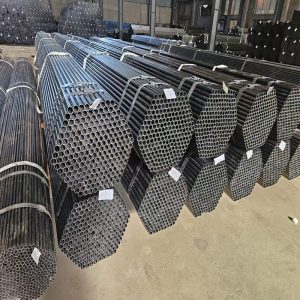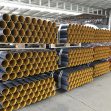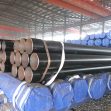Encourage innovation in the steel pipe
The steel industry has been a vital component of modern economies for more than a century, powering infrastructure development, manufacturing, and construction. In recent years, however, the industry has faced numerous challenges, including shifting demand patterns, rising competition from new materials, and environmental concerns. To ensure the continued competitiveness of the steel industry, governments can play a crucial role in encouraging innovation and promoting sustainable growth.

One of the most effective ways for governments to encourage innovation in the steel industry is through research and development (R&D) funding. By providing financial support for R&D initiatives, governments can incentivize steel pipe manufacturer to invest in new technologies and processes that can improve efficiency, reduce costs, and enhance environmental performance. For example, funding can be directed towards research into new steel alloys that are stronger, lighter, and more corrosion-resistant, or technologies that enable steel production with lower emissions.
Another important way governments can encourage innovation in the steel industry is by promoting collaboration between industry players, academia, and research institutions. Collaborative initiatives can help accelerate the development and commercialization of new technologies and processes of round steel pipe, while also fostering knowledge-sharing and skills development across the industry. Governments can support such initiatives by providing funding for collaborative R&D projects, creating formal partnerships between industry and academia, and establishing technology transfer programs to help commercialize new innovations.
In addition to R&D funding and collaboration, governments can also encourage innovation in the steel industry by creating regulatory frameworks of rectangular steel tube that promote sustainability and environmental performance. This can include setting targets for reducing greenhouse gas emissions and other pollutants, and implementing policies that incentivize the adoption of cleaner technologies and practices. For example, governments can offer tax breaks or subsidies for steel companies that invest in renewable energy or energy-efficient technologies, or impose carbon taxes or emissions trading schemes to encourage companies to reduce their environmental footprint.
Finally, governments can also promote innovation in the steel industry by investing in skills development and education. By providing training and education programs that equip workers with the skills needed to operate new technologies and processes, governments can help ensure that the industry remains competitive and sustainable in the long term. This can include funding for vocational training programs, apprenticeships, and higher education programs in fields related to steel production of Tianjin steel pipe and engineering.
In conclusion, the steel industry faces numerous challenges in today’s rapidly evolving economic and environmental landscape. To encourage innovation and promote sustainable growth in the sector, governments can play a vital role by providing R&D funding, promoting collaboration between industry players and research institutions, creating regulatory frameworks that incentivize sustainability and environmental performance, and investing in skills development and education programs. By working together with industry stakeholders, governments can help ensure that the steel industry remains a vital component of modern economies for generations to come.
Tel: +86 18202256900 Email: steel@fwssteel.com










